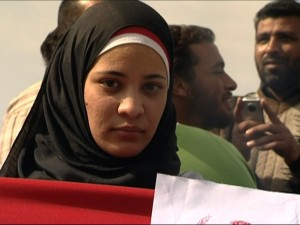In December 2010 the Muslim world began to ignite. Like dominos, fifteen North African and Middle Eastern nations became inflamed with discontent, violence and death – all Muslim nations, all guilty of widespread government corruption and suppression of the masses and all avowed haters of the Zionist state that lives within their midst. What will be the outcome for Israel, the tiny island of democracy in the sea of an emerging Muslim narrative?
As dissension raged, Israeli leadership remained quiet.
Ben Menachem, an Israeli Arab and Middle East radio and TV commentator stated, “… the political echelon kept quiet for a very long time because they didn’t want that Israel would be the agenda for the internal changes that are happening in Syria and in Egypt and all over. If Israel would comment on such events, they would take the Israelis’ comments and use them as part of the internal dispute among themselves.”
How will the changes in the Muslim world impact Israel?
“I think if we can sum up the last four months, we can see that it is only very negative for Israel,” says Menachem. “The immediate result of this uprising is that the radical elements of the Middle East are getting stronger and this is worrying for Israel.”
Only one day after the violent Palestinian Nekbah Day, Israeli Prime Minister Benyamin Netanyahu admitted that Israel was ready to make painful concessions for “parts of the homeland.” Israel appears more desperate than ever for a formal peace agreement.
The Palestinians need simply to recognize Israel’s legitimacy and denounce terror – both highly unlikely under the current tenuous Palestinian unity government with Hamas, a member of the radical Muslim Brotherhood.
Despite the situation on the ground, some Christian leaders in the region see this as a moment of opportunity.
“I believe it all depends on what direction these nations go,” says Rick Ridings, Director of Succat Hallel, a 24/7 house of prayer in Jerusalem. “If they go to a much stronger Islamic identity in the way that Iran has, then we can look for the types of confederations to come together that are spoken of, for example in Psalm 83. It talks about them … saying, ‘Let’s just wipe Israel off the map.’”
But this could change with prayer.
“It is a time for us to press in and pray that there will be a crumbling of the wall of Islam, that it cannot keep the captives captive any longer, but that they will come to know who Jesus really is,” contends Ridings. “It is not a time for Christians just to kind of give up and say, ‘Well radical Islam will take it over.’ In it all we need to see that the sovereignty and the greatness of God is at work, and that God is doing something very powerful in this region right now.”
If the flames of revolt turn into flames of revival, the situation on the ground could indeed have a very different outcome for Israel.
Copyright © Acts News Network, Inc.

